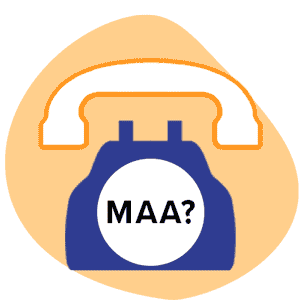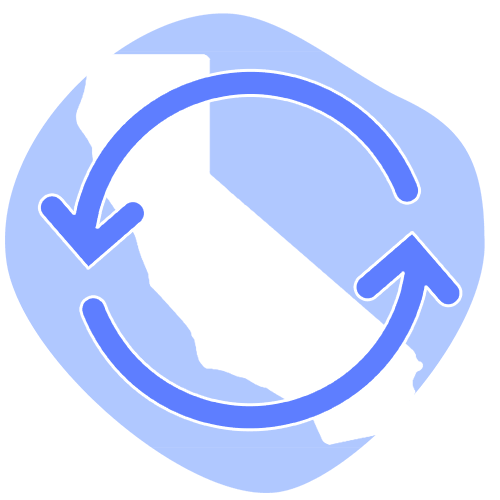Why Does CA DWC 1 Form Fail to Mention Mandated MAAs?

The DWC 1 form, created by California’s Division of Workers’ Compensation (DWC) to satisfy its legal mandate to inform newly injured workers of their rights and benefits, fails to give workers the information they need to navigate the anarchic Medical Provider Network (MPN) system.
We’ve written extensively about the shortcomings of the DWC 1 in the context of MPNs. Still, one omission stands out: the failure to mention injured workers’ right to the services of Medical Access Assistants (MAAs).
California law mandates that MAAs be available to all injured workers restricted to their employer or insurer’s MPN. The law details explicitly how and when MAAs are expected to guide injured workers through MPN complexities, including identifying eligible MPN providers, scheduling appointments, required hours of MAA availability, and more.
So why is that valuable information not included in the DWC 1 – the form that injured workers rely on for an “easily understandable” explanation of their rights and benefits upon reporting their injury?
We’d wager that if a poll were taken, the number of injured California workers (or doctors) who’d even heard of MAAs would be close to zero.
This is astounding, unfortunate, and perhaps the best reason to rewrite the DWC 1 form meant to function as a roadmap for injured workers. We can’t help but ask: why would the DWC choose not to make injured workers aware of rights and benefits that the DWC is meant to uphold and enforce?
Injured CA Workers - Entitled to MAA Help
The workers’ comp system is mystifying enough; adding MPNs can make obtaining care a nightmare. California legislators, therefore, mandated a few simple employer and insurer requirements to help injured workers trapped in a restrictive MPN:
- The initial MPN physician visit must be arranged and paid for by the employer/insurer — through an MAA if necessary (within one business day).
- After the initial MPN physician visit, the injured worker may select a treating physician from the MPN — with an MAA’s help.
- The MPN must provide the injured worker with a selection of three treating physicians within 15 miles or 30 minutes of their home or work location — with whom an MAA must make the first appointment on behalf of the injured worker within three days of the injured worker’s request.
- If a specialist is required, the physician must be available within 30 miles or 60 minutes of the injured worker’s home or work — with whom an MAA must make the first appointment on behalf of the injured worker within ten days of the injured worker’s request and the appointment must be within 20 days of the injured worker’s request.
- MAAs must be available six days weekly, 7 AM - 8 PM, to respond to injured workers and arrange care.
If an MAA cannot secure necessary appointments within specific time frames, the injured worker may seek care outside the MPN.
To put it more simply: If your employer restricts your care to an MPN, you may still select your physicians with the help of an MAA, whose services must be available to you. If an MAA cannot secure a timely appointment with your preferred MPN physician, you may seek treatment outside the MPN.
That’s the kind of information a reasonable person would expect to see on a form created to ensure injured workers know how to get the care they need. Unfortunately, all-too-frequently, California workers’ comp is as inhospitable to the reasonable as it is to the injured.
Supporting Injured Workers
When an injured worker hands the DWC 1 to their employer, the employer should be required to immediately give the injured worker the name of the applicable MPN, the MPN ID number, and the phone number to reach an MAA; the employer should also inform the injured worker of their right to an initial evaluation within a single business day.
Just as crucially, the DWC 1 should tell injured workers to expect this MAA information from their employer and to demand it if necessary.
When the employer fails to adhere to MAA requirements, the DWC should provide an easy way for the injured worker to report the employer. But, of course, that would oblige the DWC to enforce workers’ compensation laws and regulations.
For the DWC 1 to be silent on MAAs is worse than an oversight; it’s an abdication of the state’s responsibility to give injured workers a guiding light in the hellscape of the MPN system.
There is no mention of MAAs, or that the MAA must make treating physician and specialist appointments within specific time frames, or that these MPN physicians must be geographically close to the injured worker’s home or workplace. Without this critical information, how can anyone seriously argue that the DWC 1 fulfills the DWC’s duty to explain “from whom the employee can obtain medical care”?
CA MAA Law & Regulations
California’s laws and regulations couldn’t be more precise. California Code of Regulations Section 9767.5 states (emphases ours):
“MPN medical access assistants shall be located in the United States and shall be available, at a minimum, from Monday through Saturday from 7 am to 8 pm, Pacific Time, to provide employee assistance with access to medical care under the MPN.
The employee assistance shall be available in English and Spanish. The assistance shall include but not be limited to contacting provider offices during regular business hours and scheduling medical appointments for covered employees.”
California Labor Code Section 4616 mandates (emphases ours):
“Every medical provider network shall post on its internet website information about how to contact the medical provider network contact and medical access assistants…”
“Every medical provider network shall provide one or more persons within the United States to serve as medical access assistants to help an injured employee find an available physician of the employee’s choice, and subsequent physicians if necessary…”
California Code of Regulations §9767.5 also explains that an MAA must ensure that the injured worker's first appointment with their MPN physician of choice is within three days (emphasis ours):
For non-emergency services, the MPN applicant shall ensure that an appointment for the first treatment visit under the MPN is available within 3 business days of a covered employee's notice to an MPN medical access assistant that treatment is needed.
When specialist care is required, the MAA must ensure an appointment within the MPN within 20 days; if the MAA fails to make that appointment within ten days, the injured worker may seek care outside the MPN. §9767.5 continues (emphases ours):
…the MPN applicant shall ensure that an initial appointment with a specialist in an appropriate referred specialty is available within 20 business days of a covered employee's reasonable requests for an appointment through an MPN medical access assistant…
If an MPN medical access assistant is unable to schedule a timely medical appointment with an appropriate specialist within ten business days of an employee's request, the employer shall permit the employee to obtain necessary treatment with an appropriate specialist outside of the MPN.
Of course, all the laws and regulations in the world won’t help a single injured employee if employees are in the dark regarding their rights — a problem California legislators explicitly mandated the DWC solve with the DWC 1.
Learn how workers’ comp e-billing works (and what can go wrong) at our free live mini-lesson + Q&A on November 2. Sign up and submit your questions below.
SIGN UP & SUBMIT QUESTIONS
DaisyBill provides content as an insightful service to its readers and clients. It does not offer legal advice and cannot guarantee the accuracy or suitability of its content for a particular purpose.
.gif)



.gif)
